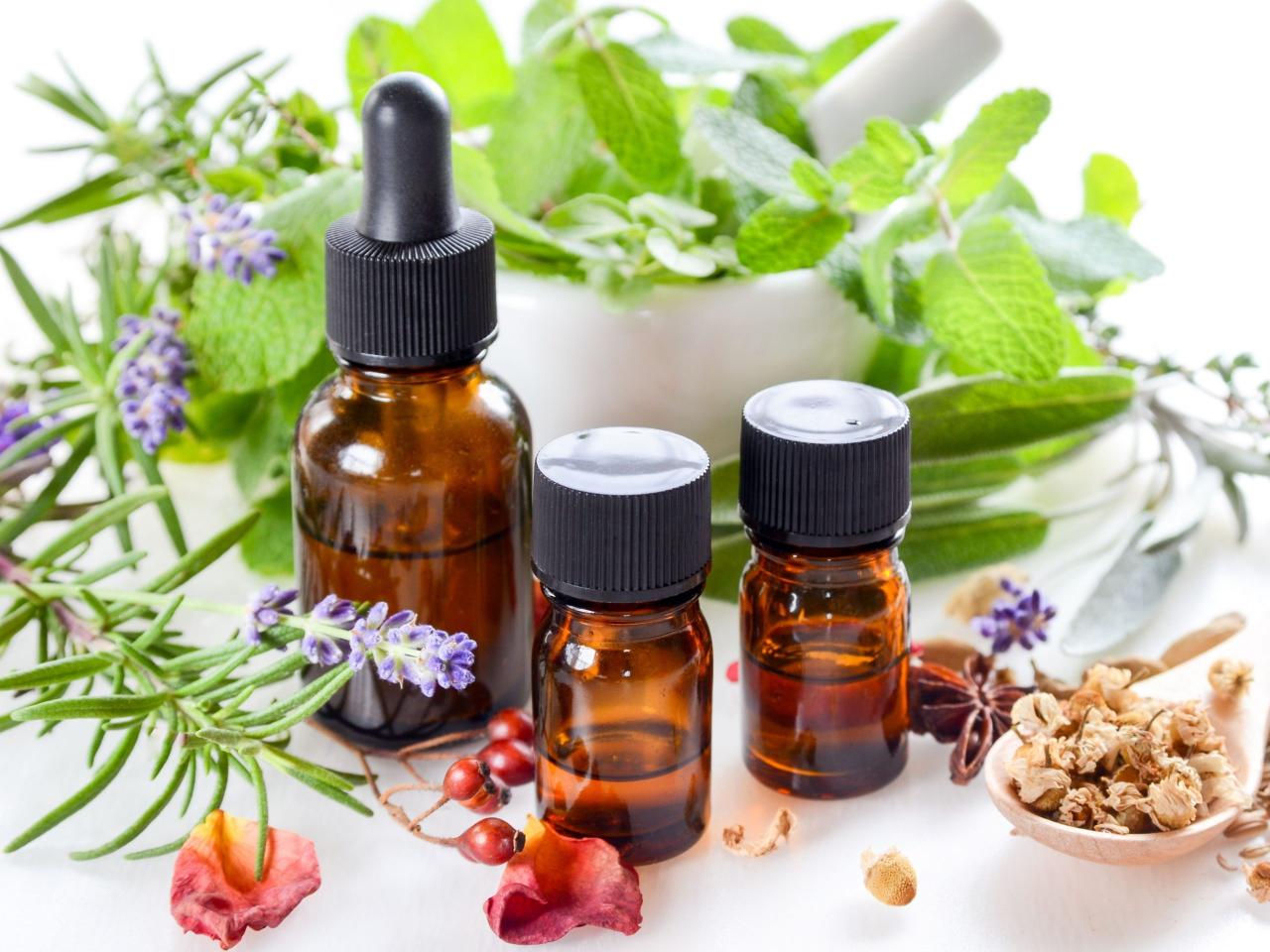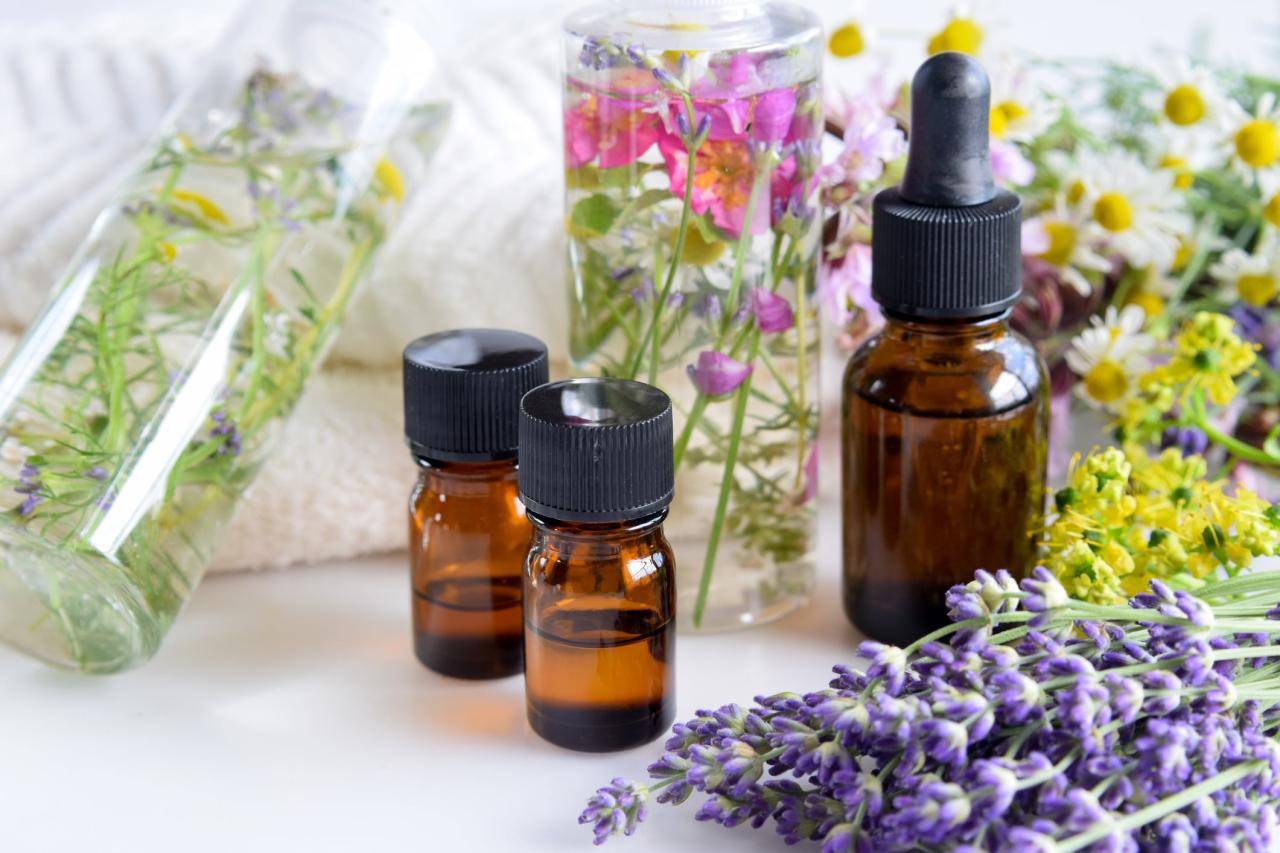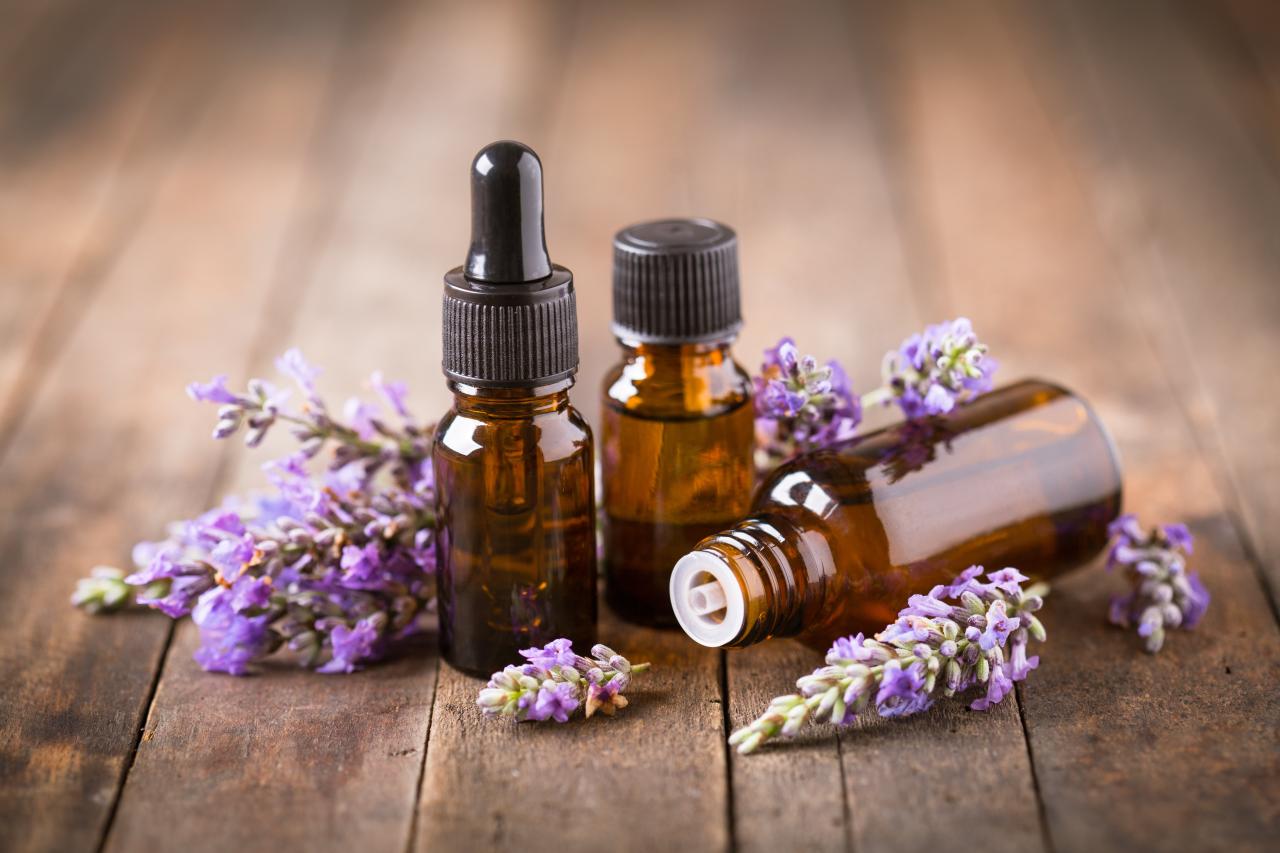In a world where natural remedies are gaining prominence, aromatherapy oils have emerged as a beacon of holistic wellness. These fragrant elixirs, extracted from the essence of plants, possess therapeutic properties that can alleviate a myriad of physical and emotional ailments.
Embark on a captivating journey as we delve into the enchanting world of aromatherapy oils, exploring their diverse benefits, applications, and the scientific evidence that underpins their efficacy.
From the soothing embrace of lavender to the invigorating aroma of peppermint, each aromatherapy oil carries a unique symphony of compounds that interact with our bodies and minds, promoting relaxation, reducing stress, and enhancing overall well-being. Join us as we unravel the secrets of these aromatic treasures, empowering you to harness their transformative power for a life infused with vitality and serenity.
Aromatherapy Oil Benefits

Aromatherapy oils, extracted from plants and flowers, possess therapeutic and medicinal properties that have been recognized for centuries. These oils, when diffused or applied topically, can alleviate a wide range of physical and emotional ailments.
Scientific studies have substantiated the benefits of aromatherapy oils, demonstrating their effectiveness in reducing stress, improving sleep quality, alleviating pain, and boosting immunity.
Physical Benefits
- Pain Relief:Oils like peppermint, lavender, and eucalyptus have analgesic properties that can reduce pain associated with headaches, muscle aches, and joint pain.
- Improved Sleep:Lavender, chamomile, and bergamot oils promote relaxation and reduce anxiety, leading to improved sleep quality.
- Boosted Immunity:Certain oils, such as tea tree oil and eucalyptus oil, possess antimicrobial and antiviral properties that can strengthen the immune system.
Emotional Benefits
- Stress Reduction:Oils like lavender, chamomile, and ylang-ylang have calming effects that can reduce stress and anxiety.
- Mood Enhancement:Oils like citrus oils (lemon, orange, grapefruit) and peppermint can uplift mood and boost energy levels.
- Cognitive Function:Rosemary and peppermint oils have been shown to improve cognitive function, enhancing memory and concentration.
Types of Aromatherapy Oils
Aromatherapy oils are extracted from various plant sources, each offering unique properties and therapeutic benefits. Here’s a comprehensive table categorizing different types of aromatherapy oils based on their origins:
| Source | Botanical Name | Common Name | Description |
|---|---|---|---|
| Flowers | Rosa damascena | Rose | Known for its calming and uplifting properties, often used to reduce stress and promote relaxation. |
| Flowers | Lavandula angustifolia | Lavender | Promotes relaxation, reduces anxiety, and aids in sleep. |
| Flowers | Citrus aurantium | Orange | Uplifts mood, reduces stress, and has energizing effects. |
| Herbs | Mentha piperita | Peppermint | Boosts alertness, improves focus, and aids in digestion. |
| Herbs | Rosmarinus officinalis | Rosemary | Stimulates the mind, improves memory, and reduces stress. |
| Herbs | Thymus vulgaris | Thyme | Antiseptic and antibacterial properties, often used to treat respiratory issues and boost immunity. |
| Spices | Cinnamomum zeylanicum | Cinnamon | Warming and stimulating, promotes circulation and aids in digestion. |
| Spices | Eugenia caryophyllus | Clove | Antibacterial and antiviral properties, often used to relieve pain and inflammation. |
| Spices | Piper nigrum | Black Pepper | Stimulating and warming, aids in digestion and reduces inflammation. |
How to Use Aromatherapy Oils
Incorporating aromatherapy oils into your routine can be a beneficial and enjoyable experience. Here’s a guide to using them effectively and safely:
Inhalation
Inhaling essential oils through the nose is a common and direct way to experience their benefits. You can do this by:
- Using an aromatherapy diffuser: Add a few drops of essential oil to a diffuser and let it disperse the scent into the air.
- Sniffing from the bottle: Hold the bottle close to your nose and inhale deeply for a few seconds.
- Using an inhaler: Fill an inhaler with a few drops of essential oil and inhale as needed.
Topical Application
Applying essential oils directly to the skin can provide localized benefits. However, it’s crucial to dilute them in a carrier oil, such as jojoba or coconut oil, to prevent skin irritation.
You can use diluted essential oils for:
- Massage: Add a few drops of essential oil to a carrier oil and massage into the desired area.
- Bathing: Add a few drops of essential oil to your bathwater and soak for 15-20 minutes.
- Compresses: Soak a cloth in warm water with a few drops of essential oil and apply it to the affected area.
Diffusion
Diffusion is a method of dispersing essential oils into the air using a diffuser. This allows the scent to be enjoyed throughout a larger space.
When using a diffuser:
- Follow the manufacturer’s instructions for the amount of oil to use.
- Diffuse for short intervals, such as 30 minutes on and 30 minutes off.
- Avoid using essential oils near children or pets who may be sensitive to strong scents.
Safety Precautions and Contraindications
While aromatherapy oils can be beneficial, it’s important to use them safely:
- Never ingest essential oils.
- Avoid applying undiluted essential oils directly to the skin.
- Some essential oils, such as eucalyptus and tea tree oil, can be toxic to pets.
- Certain essential oils may interact with medications or medical conditions. Consult with a healthcare professional before using essential oils if you have any concerns.
Recommended Dosages and Frequency of Use
The recommended dosage and frequency of use for essential oils vary depending on the oil and the desired purpose.
For general use, it’s recommended to start with a low dosage and gradually increase it as needed. Always follow the manufacturer’s instructions or consult with an aromatherapist for specific recommendations.
DIY Aromatherapy Blends

Creating your own aromatherapy oil blends allows you to customize the scents and therapeutic benefits to suit your specific needs. Experiment with different combinations to find the perfect blend for relaxation, sleep, energy, or any other desired outcome.
Here are a few popular aromatherapy oil blends for specific purposes, along with recipes and guidance on adjusting them based on your preferences:
Relaxation Blend
- Lavender oil: 3 drops
- Bergamot oil: 2 drops
- Chamomile oil: 1 drop
This blend promotes relaxation and reduces stress. Adjust the proportions of each oil to suit your preferences, or add a drop of ylang-ylang or frankincense for added calming effects.
Aromatherapy for Specific Conditions

Aromatherapy can be used to address a wide range of health concerns, both physical and emotional. By inhaling or applying essential oils to the skin, you can experience a variety of benefits, including reduced stress, improved sleep, and relief from skin conditions and respiratory issues.
The following are some of the most common health conditions that can be treated with aromatherapy:
Stress and Anxiety
Aromatherapy is a well-known and effective way to reduce stress and anxiety. Inhaling essential oils such as lavender, chamomile, and bergamot can help to calm the nervous system and promote relaxation. These oils can be used in a diffuser, added to a bath, or applied to the skin in a diluted form.
One study found that inhaling lavender oil for 30 minutes significantly reduced anxiety levels in people who were about to undergo surgery. Another study found that chamomile oil was effective in reducing stress and anxiety in people with generalized anxiety disorder.
Sleep Disorders
Aromatherapy can also be helpful for improving sleep quality. Inhaling essential oils such as lavender, chamomile, and ylang-ylang can help to promote relaxation and sleep. These oils can be used in a diffuser, added to a bath, or applied to the skin in a diluted form.
One study found that inhaling lavender oil for 30 minutes before bed improved sleep quality in people with insomnia. Another study found that chamomile oil was effective in reducing sleep disturbances in people with anxiety disorders.
Skin Conditions
Aromatherapy can be used to treat a variety of skin conditions, including acne, eczema, and psoriasis. Essential oils such as tea tree oil, lavender oil, and rosemary oil have antibacterial and anti-inflammatory properties that can help to soothe and heal the skin.
One study found that applying tea tree oil to the skin twice a day for 12 weeks significantly reduced the severity of acne. Another study found that lavender oil was effective in reducing the symptoms of eczema.
Respiratory Issues
Aromatherapy can also be helpful for treating respiratory issues, such as colds, coughs, and congestion. Inhaling essential oils such as eucalyptus oil, peppermint oil, and rosemary oil can help to clear the sinuses and promote breathing. These oils can be used in a diffuser, added to a steamy bath, or applied to the chest in a diluted form.
One study found that inhaling eucalyptus oil for 30 minutes significantly reduced the severity of cold symptoms. Another study found that peppermint oil was effective in reducing congestion and improving breathing in people with asthma.
Closing Summary
As we conclude our exploration of aromatherapy oils, we recognize their immense potential to enhance our physical and emotional well-being. From alleviating stress and anxiety to promoting restful sleep and soothing skin conditions, these fragrant allies offer a natural and holistic approach to healthcare.
Embrace the wisdom of ancient traditions and incorporate aromatherapy oils into your daily routine, unlocking a world of therapeutic benefits that will nurture your body, mind, and spirit.